August is National Family History Month in Australia and New Zealand. Over the last decade, I have had the opportunity a number of times to visit New Zealand for their annual family history expo in Auckland. This year due to COVID 19, attending was not an option so I was a bit jealous to see New Zealand geneafriends gathering in Auckland and also in Christchurch. Unfortunately there was a new COVID outbreak in Auckland during the expo and New Zealand reintroduced restrictions. This meant that the Christchurch expo could no longer go ahead as planned.
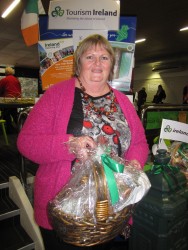
NZ Expo in Auckland
Thanks to quick thinking by the organisers and quite a bit of work, they managed to make it a virtual event. This was opened up to all on a free basis. I quickly registered as did a number of geneafriends in Australia. As it was a Zoom meeting you could see the names of those attending and where from. At the start you could also see people live but sound and video for attendees were turned off during the talks to minimise distractions.
It was a full program starting from a Welcome at 9am (which was 7am Australian time, unless you lived further west, then it was even earlier). This made it an early start for me but with no travel time, I easily made it from the bedroom, via the bathroom and kitchen, into the study and with a nice cup of tea. There were seven presentations of which three were international webinars and prerecorded, and four local New Zealand speakers.
Myko Clelland (also known as @dapperhistorian on Twitter) was the first international speaker with Discovering British & Irish Ancestors with FIndmypast. He spoke about the basic name search, a category search and the A-Z record sets with lots of tips and hints on how to maximise your searches. Myko works for Findmypast and I was amazed to learn that over 300 record sets were added last year. The database is growing at an incredible rate and you really do need to revisit from time to time. Or you can subscribe to their free enewsletter to learn what’s new each week.
This was followed by Fiona Brooker (Memories in Time) with Story to Book. I liked the concept of family history as a bridge between generations and the four main steps are plan, illustrate, publish and share. Fiona was doing a photobook in this instance but the methodology applies to whatever approach you take to capturing your family stories. Photobooks have a 100 word text limitation and it is easy to write 100 words per image if you do not want to take on a large family history writing project. She mentioned timelines and the importance of placing your family history amongst state, national or world events.
Next was Valerie Anderson talking about FamilySearch for Beginners. Valerie demonstrated their Fan Chart which can be up to 7 generations and it clearly shows any gaps in the family tree. It can also be coloured by birth country and have sources attached. Looks impressive. The FamilySearch Wiki Learning Centre is a must visit, unindexed collections can be found via the Map Search. These are image only historical records which have not yet been indexed. There are about 325,000 digitised books and do not forget to check out the catalogue.
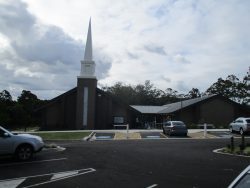
at Forest Glen, Queensland
Then we had another international session with Curt Witcher, Genealogy Centre Manager, on Passenger & Immigration Research. His talk was American centric but his research methodology was applicable for everyone. It was a three step process – leaving, arriving and settling down. He started with the latter as there are a range of sources in the new home country which might help to identify when someone arrived. Then he looked at arrival type records including passenger lists. Finally records that related to people leaving their homeland and perhaps why they did.
One of my favourite speakers, Michelle Patient was next with Ancestry DNA. This was a basic talk aimed at those who had not done a DNA test or were just starting out with their matches.
Even so I still learnt new things including the importance of scrolling down, as obvious as that sounds. Ancestry have been making quite a few changes over recent months and in the Ethnicity section, I had not realised that Ancestry gives you hints as to who is related to you in this section if you read the text and scroll down.
Edwina Swingler followed with Using Maps to Enhance Your Research. I love maps as they can help to visualise where our ancestors lived and what was nearby. While there was a New Zealand focus, Edwina also talked about England, Scotland and Ireland maps online. I must check out the National Library of Scotland’s digitised maps. Booth’s Maps of London Poverty and police notebooks always fascinate me. New resources for me were Alan Godfrey Maps (an online map shop) and Caledonian Maps, another shop with some lovely maps. Perhaps a good birthday or Christmas present.
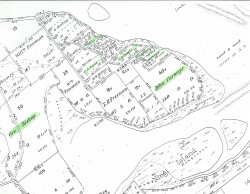
my GGG grandfather’s land
The final session of the day was John Grenham speaking about the Recent Revolution in Irish Research. Grenham’s website is one of my must go to websites for Irish family history. It is so useful for dozens of reasons and it was really good to here him speak about these resources. Start with his website as it has links to all the good Irish sites.
At the start of the day Fiona Brooker took time to explain to attendees the various features of Zoom and how the day would operate in the virtual world. After most sessions there was time to stretch, maybe get a cup of tea and refreshments and go to the loo. For once at a conference I did not have to queue for the loo!
While a virtual event has its advantages I did miss not being able to go up and hug/chat to friends I saw online. You could send a chat message to people but not quite the same.
Speaking of chat I really liked the ability to save chat as Fiona and Michelle had been adding URLs during talks and question time. Attendees can now go through them and follow up any clues.
There were some technical hiccups which are only to be expected when using the internet. Michelle totally dropped out and Fiona did a good job of keeping things going until Michelle managed to get back in and continue her presentation. Overall the technology is amazing and the opportunity to hear such good speakers in the comfort of my own home was wonderful. Fantastic day and I now have another list of things to follow up.
Many thanks to Fiona, Michelle and the rest of the Christchurch expo team for putting together the virtual event together so quickly and for allowing others to attend for free. Well done everyone.
Already looking forward to next year’s National Family History Month.
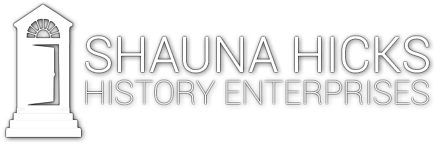
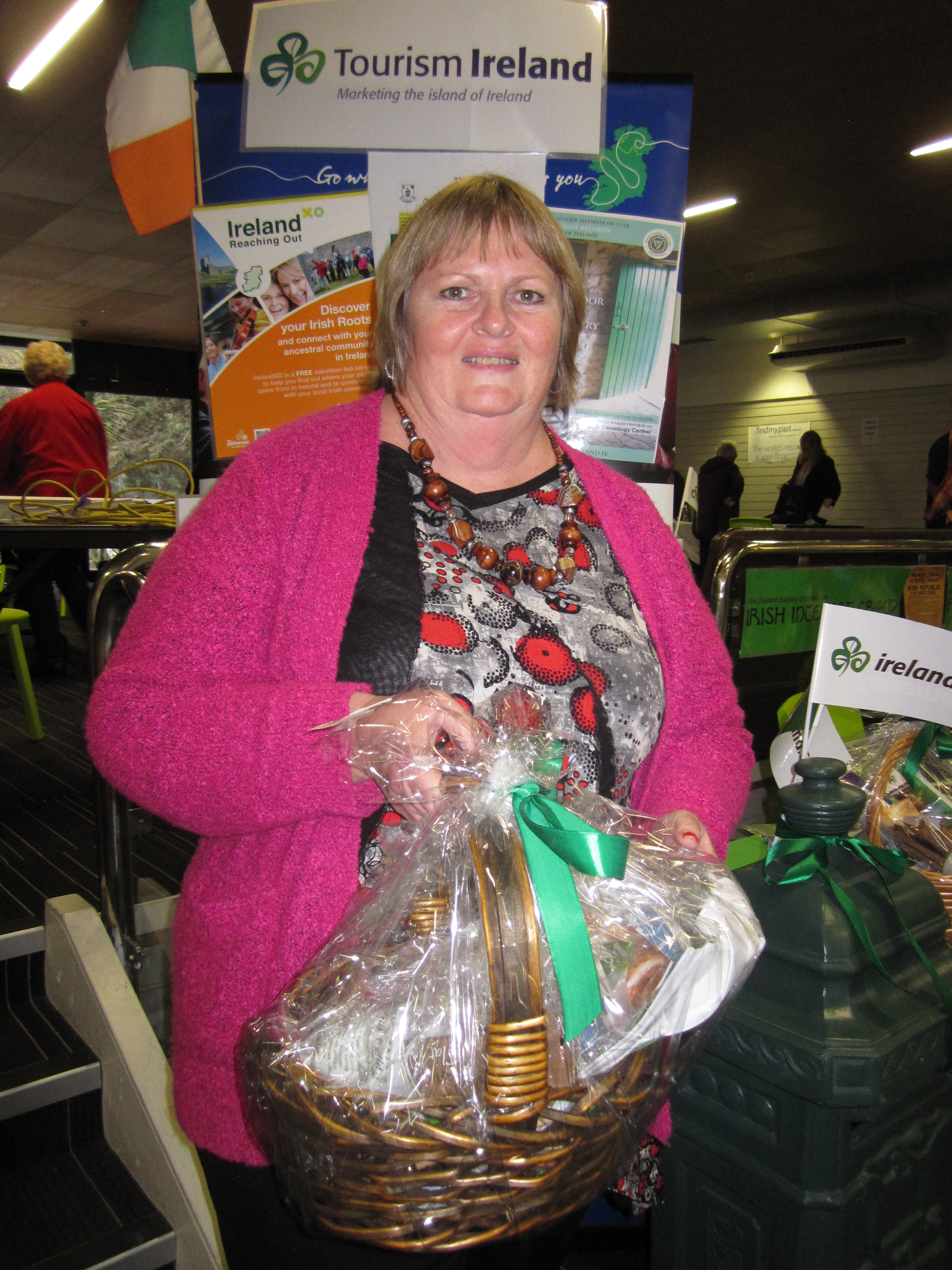
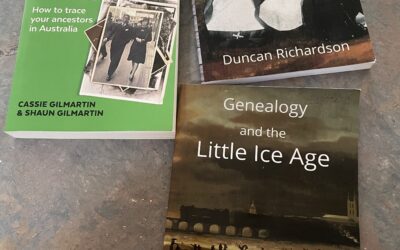
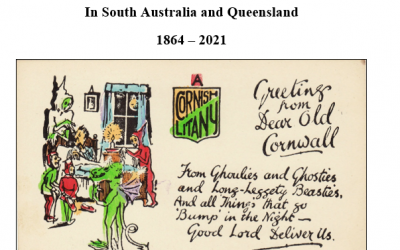

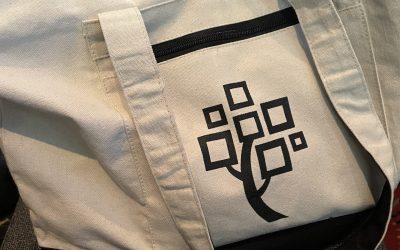
0 Comments